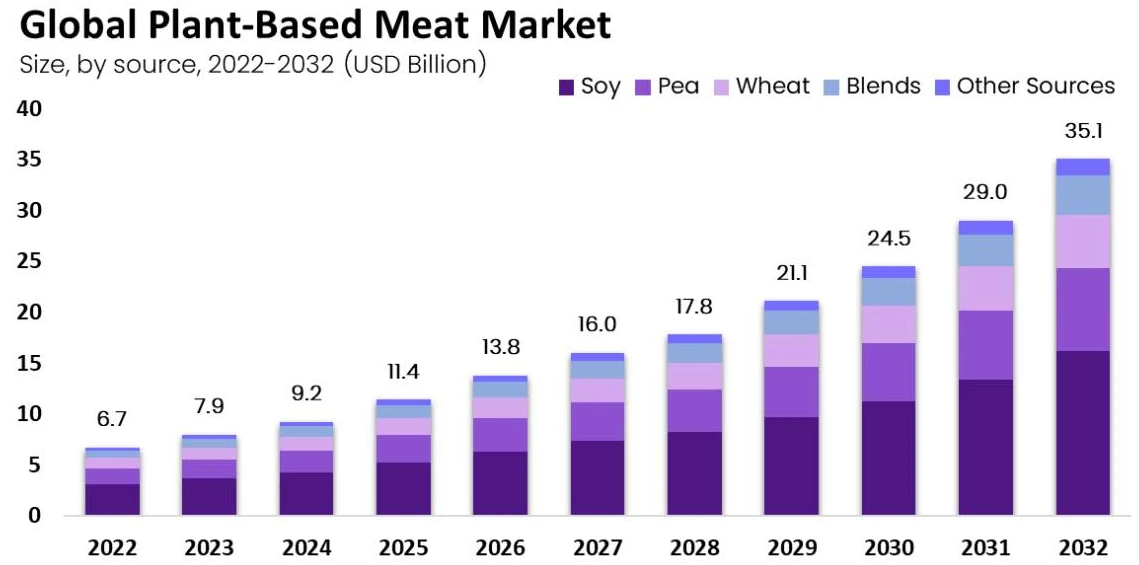Plant-based foods are typically considered ultra-healthy, but we now know that ultra-processed foods are bad for you even when it’s plant-based. A recent study reveals that ultra-processed plant-based foods could heighten the risk of heart disease and early death.
The Risk Behind Ultra-Processed Plant-Based Foods
Eating a plant-based diet, where most consumed foods are plant-sourced, is generally associated with a reduced risk of heart issues and a longer life span. Let’s be clear, plant-based doesn’t mean plants-only; many adherents include lean meats, dairy, eggs, and fish in their diets.
But this study proves that an ultra-processed food is still an ultra-processed food, regardless of its base ingredients. Simply put, the health benefits of plant-based diets don’t extend to ultra-processed plant foods like oat milk, vegan nuggets and potato chips. A new study indicates that these foods increase the risk of cardiovascular disease and premature death just as much, if not more, than their traditional ultra-processed counterparts.
The Rising Popularity of Plant-Based Alternatives
The market for highly-processed plant-based meat alternatives has surged in recent years, reaching a valuation of \$7.9 billion in 2023, according to the Good Food Institute. Despite their popularity, these ultra-processed foods (UPFs) dominate about 73% of the US food supply, as noted in a 2024 research paper by Northeastern University’s Network Science Institute.
The study, which hasn’t been peer-reviewed yet, links high consumption of UPFs to various health issues, including cancer, type 2 diabetes, and obesity. Researchers aimed to explore the impact of plant-based products and UPFs on cardiovascular risk by analyzing data from the UK Biobank longitudinal study, involving over 118,000 individuals aged 40 to 69.
Alarming Findings and a Healthier Alternative
Published in The Lancet Regional Health Europe, the study discovered that plant-based UPF consumption was linked to a 5% increase in cardiovascular disease risk and a 12% higher risk of early death. Yet, when minimally processed plant-based foods replaced plant-based UPFs the research showed a 7% reduction in cardiovascular disease risk and 15% lower risk of dying from cardiovascular-related issues.
The authors of the study suggested that dietary guidelines should focus on reducing red meat and processed animal foods such as packaged deli meats and hot dogs, but should also avoid UPFs in any form. “A higher intake of plant-sourced foods may only bring about better cardiovascular health outcomes when largely based on minimally processed foods, while a higher intake of plant-sourced UPF may have detrimental effects on health,” the study noted.
Understanding Ultra-Processed Foods
Duane Mellor, a dietitian and spokesperson for the British Dietetic Association, highlighted that processed baked goods constituted the majority of plant-based UPFs. These included packaged bread, pastries, cakes, cookies, potato chips, and sugar-sweetened beverages. Surprisingly, fake meat made up a mere 0.5% of all ultra-processed foods consumed by the study participants.

Tom Sanders, Professor Emeritus of Nutrition and Dietetics at King’s College London, agreed by pointing out the confusion surrounding the term “plant-based ultra-processed food.” He argued that cake, soda, and cookies remain unhealthy regardless of whether they’re made industrially or at home.
Making Healthier Choices
More To Discover
The takeaway from this study is clear: not all plant-based foods are created equal. To truly reap the health benefits of a plant-based diet, you must focus on minimally processed foods and avoid ultra-processed options. Simple swaps, like choosing whole fruits over fruit snacks or homemade veggie dishes over processed meat alternatives, can significantly improve heart health and longevity.
Source: The Lancet



















